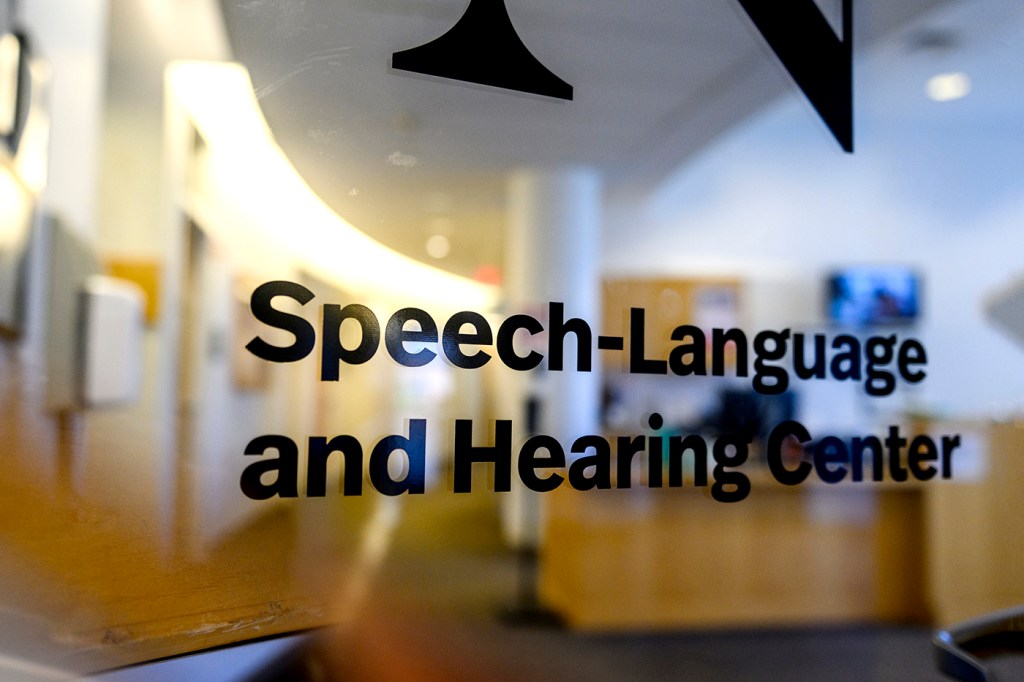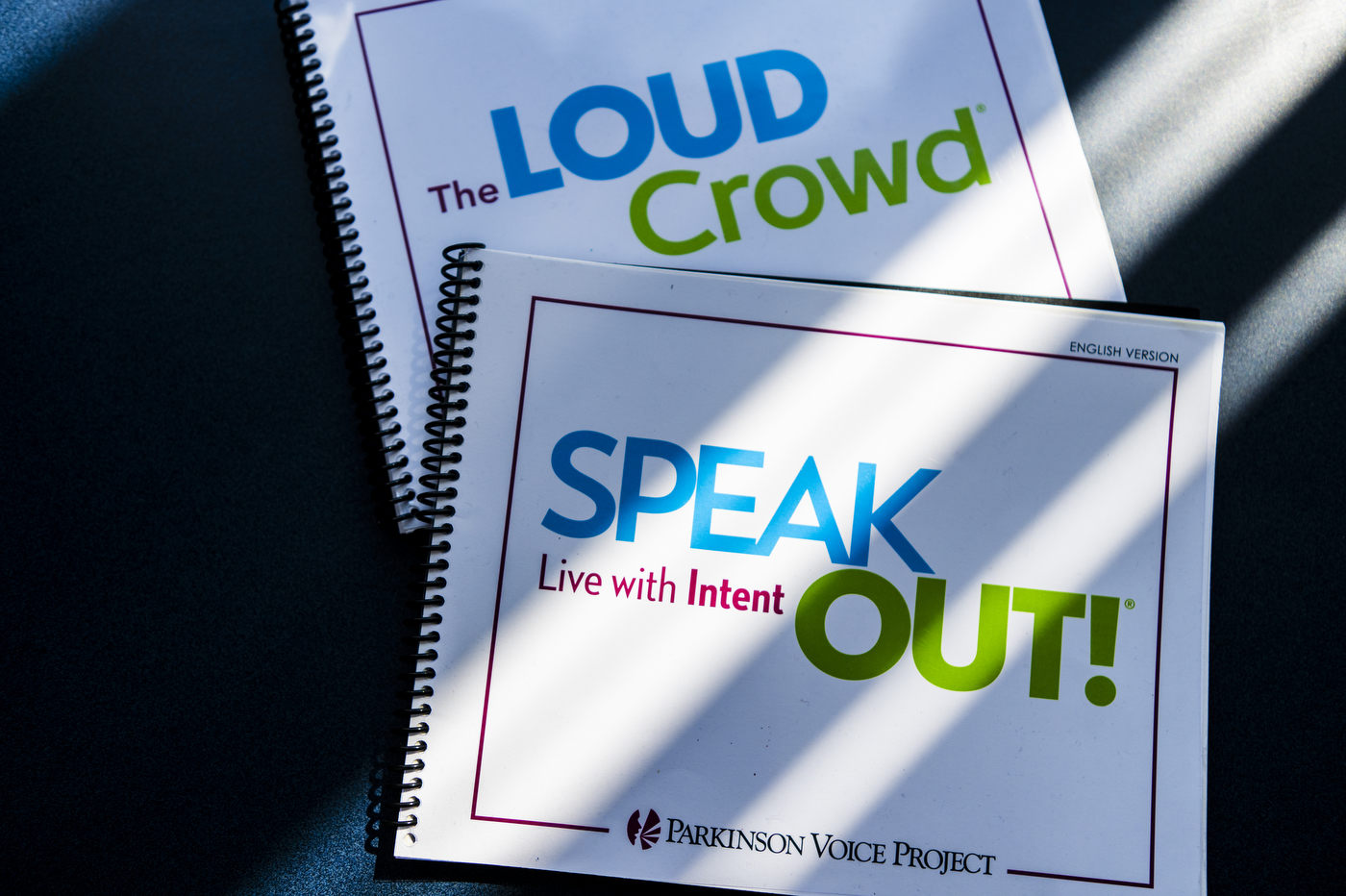Northeastern’s Parkinson’s disease treatment center helps patients avoid ‘communication breakdowns’

Rob Jacobson has been living with Parkinson’s disease for more than 15 years and says his speech is better understood after completing the specialized therapeutic program at Northeastern University’s Speech-Language and Hearing Center.
“It’s been really helpful,” Jacobson says. “I’m aware that my voice can change over time” due to the degenerative disease, “but my friends tell me they can understand me much better now.”
Dubbed Massachusetts’ only Speak Out! Therapy & Research Center by the Parkinson Voice Project, Northeastern’s center will receive a $280,000 grant from the nonprofit to go toward training, services, supplies and equipment over the next five years.
Jacobson was the first graduate of the program.
“I just went in with an open mind, and I’m glad I did,” he says. “I feel proud to be a part of this.”
The center provides residents of Massachusetts with Parkinson’s disease free access to high-quality speech treatment on campus or through telehealth.
There are other places in Massachusetts where people can access speech treatment, but they aren’t free or they don’t have a virtual option.
“We have no barriers,” says Elizabeth Martin, an assistant clinical professor at Northeastern. “We don’t charge for the program, and everyone will get the same treatment no matter what.”
Participants also have the opportunity to contribute to research, assistant professor Kristen Allison says.
Northeastern is one of 16 universities nationwide named official Therapy & Research Centers. Martin and Allison were the leads for the grant, which sets Northeastern apart from every other Speak Out! provider in the state.

The center also provides clinical training in specialized speech therapy for graduate students in the master’s program in the Department of Communication Sciences and Disorders.
Parkinson’s disease is the world’s fastest-growing neurological disorder and the second-most prevalent brain disease in the United States. Ninety percent of people with Parkinson’s are at risk of losing their ability to speak, and swallowing complications are the main cause of death in this population.
Research shows that 70% to 80% of people with Parkinson’s—a disorder of the central nervous system that affects movement—experience changes in their voices that are noticeable to others. More than half (55%) experience changes in their articulation, as well.
But these changes can be postponed or mitigated with early therapeutic intervention, Martin says.
I just went in with an open mind, and I’m glad I did. I feel proud to be a part of this.
Rob Jacobson, a participant in Northeastern’s specialized therapeutic program at the Speech-Language and Hearing Center
Launched in the fall of 2021, Speak Out! is a four-week program that helps participants learn to speak with intent. This subtle shift can help them overcome neurological challenges associated with Parkinson’s.
People with Parkinson’s have hypokinetic dysarthria, which can result in people having a soft, monotonous voice, imprecise articulation and impaired vocal quality, Martin says. Altogether that can result in people having reduced speech intelligibility, which can be frustrating when they try to communicate in their daily lives.
“It ends up resulting in many communication breakdowns,” Martin says. “People with Parkinson’s report that others often ask them to repeat themselves and that they are frequently not being heard and understood. Conversational partners then tend to avoid interacting with them.
“It affects their quality of life, and there’s research out there showing the social isolation that takes place with people when they have challenges with communication,” Martin adds.
Beth Treffeisen is a Northeastern Global News reporter. Email her at b.treffeisen@northeastern.edu. Follow her on Twitter @beth_treffeisen.
